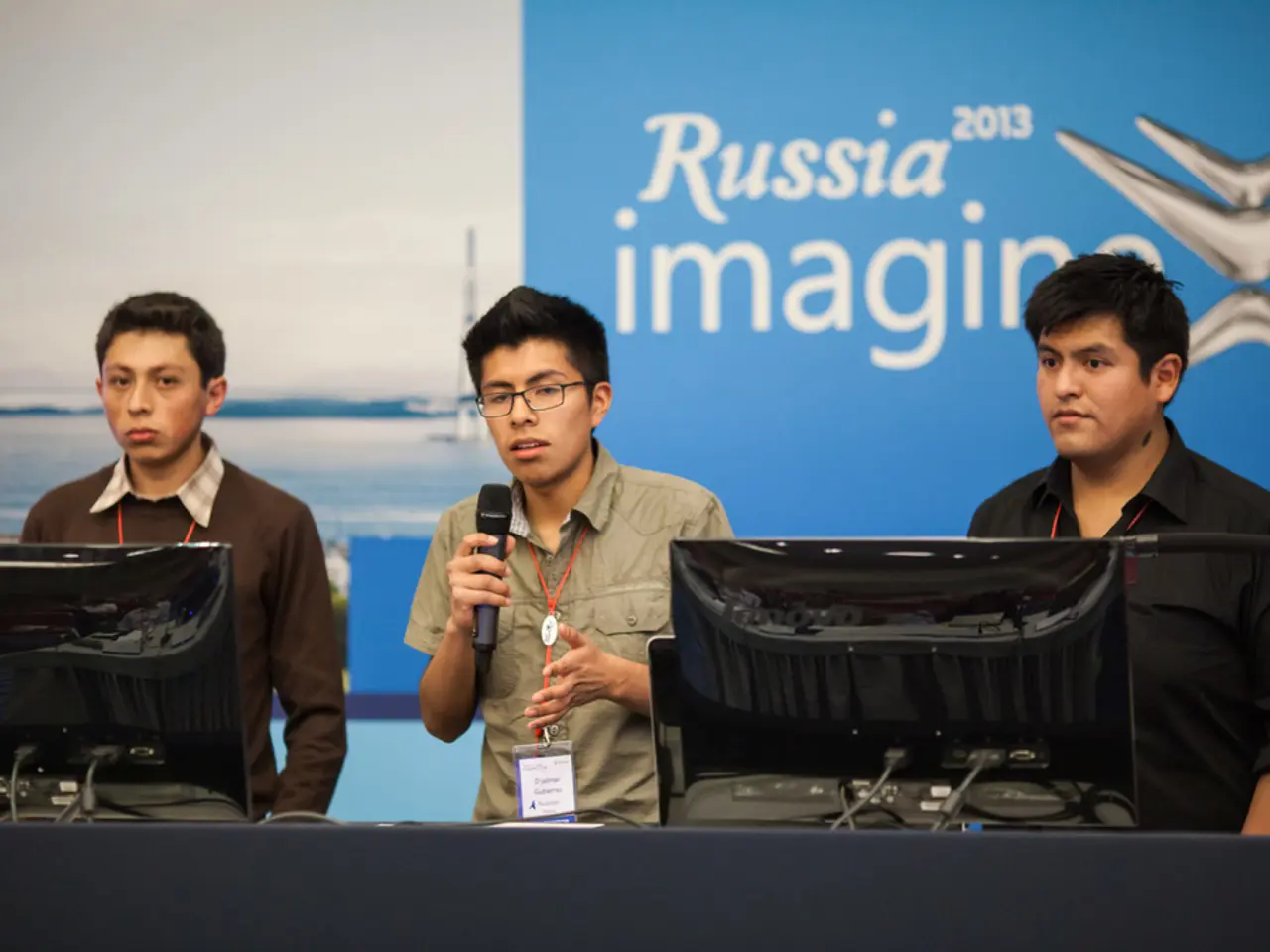"Adolescent compelled to deliver a child under someone else's identification documents, surrendering custody immediately post-birth: Insights into a significant child trafficking probe"
In a shocking turn of events, a high-profile criminal case involving child trafficking has been uncovered in Moscow. The case, which has attracted widespread attention, involves Yulia Loginova, a Moscow woman with an impeccable reputation, and another large family from the Moscow region, Natalia Patoka.
Loginova, who lost the ability to bear children independently after an operation, was discovered to have used someone else's passport to give birth in a Moscow region maternity hospital. Patoka, on the other hand, ran a charity center for women hiding their pregnancies or fleeing from abusive husbands, which served as one of the channels through which "re-registered" children were being sent.
The court is expected to consider the nuances of the case, such as the lack of mercenary intent and concern for the children's well-being. However, it is crucial to note that at least 14 children passed through this group between 2014 and 2022. If the adoptive parents do not receive real sentences, the children around whom the case is built may not be removed from their families.
The trafficking mechanism involves forcibly transferring children into Russian custody or adoption networks where they lose connection with their birth families and countries. Older children may be subjected to indoctrination and even forced participation in military conflicts against their original nations. Such schemes are part of broader illegal activities disguised as administrative adoption procedures but are in fact forms of human trafficking.
The illegal adoptions effectively enable trafficking for diverse exploitations, including forced labor, sexual exploitation, and even the risk of organ harvesting. This is a grave concern, as warned by child protection NGOs and Ukrainian officials.
In the case of Loginova and Patoka, they took on roles similar to state organs, deciding which child would go to which family without legal authority. They used various schemes to register someone else's child under their own names, including a hotline that women with unwanted pregnancies could call.
Nineteen people are accused in this case, including four large families who were previously considered exemplary. The maximum penalty for the accused under the "Trafficking in Children" article is up to 10 years in prison.
It's important to note that hospitals do not always check the identities of women in labor thoroughly, focusing more on delivering the baby and ensuring health. This, coupled with the legal allowance for changing children's identities after adoption, creates a perfect storm for the facilitation of illegal child trafficking.
This case serves as a stark reminder of the need for increased vigilance and stricter regulations to prevent such illegal activities. The well-being and safety of children must always be the paramount concern.
[1] Source [4] Source [5] Source
- This high-profile criminal case, focused on child trafficking, has brought to light the involvement of Yulia Loginova and Natalia Patoka, raising concerns about women's health, mental health, and parenting.
- Patoka, operating a charity center for vulnerable women, appears to have been a conduit for children being sent through unofficial channels, which aligns with the broader discussion of health-and-wellness and general news.
- The court is grappling with the nuances of the case, considering factors like lack of mercenary intent and concern for the children's well-being, yet it's crucial to focus on the gravity of the situation, given the potential exploitation of children, including forced labor, sexual exploitation, and the risk of organ harvesting – issues that directly impact women's health, mental health, and human rights.
- The case underscores the need for improved oversight in hospitals, maternity wards, and adoption processes to combat illegal activities such as child trafficking, emphasizing the importance of safeguarding the well-being and safety of children as a core duty of the healthcare system and the justice system, both in Russia and globally.




